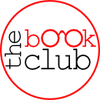 It is human nature to choose the easiest and quickest path. When we talk, we use adjectives and adverbs to describe what we saw. “It was awesome!” This could describe a lovely sunset, or a suspenseful movie or a New Year’s Eve party. “It was simply awful!” It could be an exam you took, a horrible accident or a poorly written book. Most of us have an extensive vocabulary, but we seldom use it to its fullest extent, preferring to use vernacular. But it doesn't have to be like that when we write. Spend a little time to find that one perfect word that describes what you're trying to explain. See the examples below: 1. She was extremely beautiful, and people would stop and stare at her. She was stunning. 2. She ran really fast and crossed the cobble-stone pathway. Her throat felt dry, and her heart beat so fast she could feel it against her chest. She sprinted across the cobble-stone pathway, her throat parched, as her heart pounded against her chest. Sometimes a sentence is good enough, but we have a limit on the word count. We can substitute as follows, at the cost of losing some of the impact. See next: He was obnoxious, always putting people down and boasting about his accomplishments, annoying everyone at work. His pompous demeanor annoyed his colleagues. But when you start writing, don’t be inhibited; write what comes easily and naturally, and then edit until you find the perfect word. |
Want to learn how to write fiction? Check out these helpful books.
Archives
September 2022
Categories |


 RSS Feed
RSS Feed